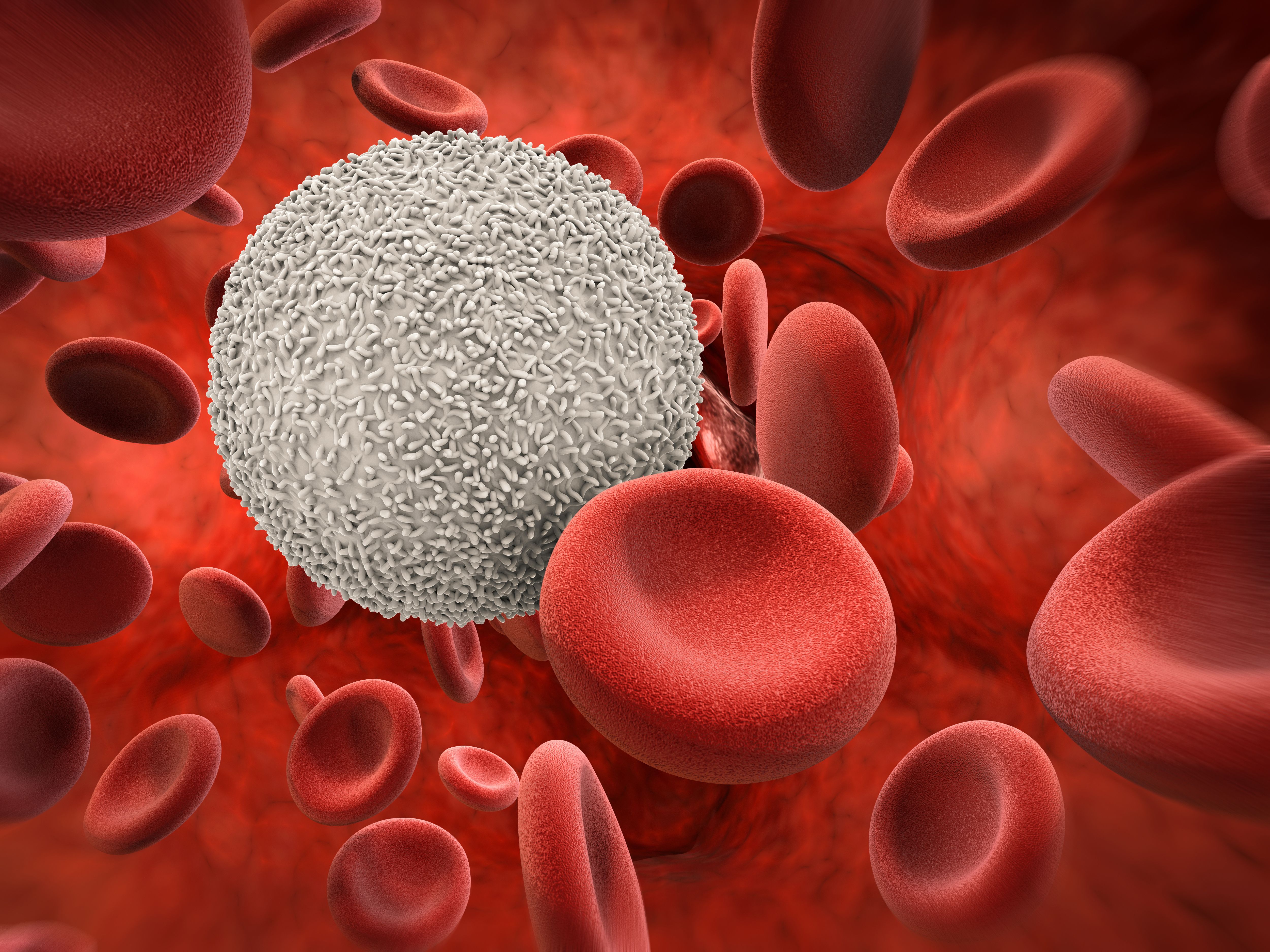Lenzilumab Plus Axi-Cel Achieves Responses in 100% of Patients With DLBCL With Limited Toxicity in Small Study
When given at the recommended phase 2 dose, lenzilumab in combination with taxicabtagene ciloleucel, induced a 100% objective response rate while showing no severe cytokine release syndrome cases or severe neurotoxicity in patients with relapsed or refractory diffuse large B-cell lymphoma.

When given at the recommended phase 2 dose (RP2D), lenzilumab (KB003), a humanized monoclonal antibody, in combination with the chimeric antigen receptor (CAR) T-cell agent axicabtagene ciloleucel (axi-cel; Yescarta), induced a 100% objective response rate (ORR) while showing no severe cytokine release syndrome (CRS) cases or severe neurotoxicity in patients with relapsed or refractory diffuse large B-cell lymphoma (DLBCL), according to data reported in a press release from Humanigen, Inc.
“These encouraging results from ZUMA-19 provide further proof of concept that lenzilumab may break the linkage between efficacy and toxicity (CRS and NT) widely-associated with CAR-T, and may improve durability of response,” said Dale Chappell, MD, MBA, chief scientific officer, Humanigen, in a statement. “We believe these data warrant a larger study involving multiple CAR-T therapies.”
The findings are from the phase 1B portion of the phase 1/2 randomized, multicenter, potentially registrational ZUMA-19 clinical trial (NCT04314843), which is investigating efficacy and safety of the sequenced therapy and searching for the RP2D in patients with large B-cell lymphoma (LBCL). The phase 1 primary end point of the study is the percentage of patients with adverse events (AEs) defined as dose-limiting toxicities, and the phase 2 primary end point is the percentage of patients with grade 2 or higher neurologic events within 28 days of axi-cel administration. The secondary end points explored include the percentage of patients experiencing AEs, serious AEs, CRS, and neurologic toxicities as well as the ORR, complete response (CR) rate, duration of response, progression-free survival, overall survival, and pharmacokinetics.
The study follows a 3 + 3 design. Three patients in ZUMA-19 received lenzilumab 600 mg in cohort 1 and 3 patients received lenzilumab 1800 mg in cohort 2. CAR T cells are administered after lenzilumab in the study.
Investigators have determined that 1800 mg is the RP2D of lenzilumab.
In terms of efficacy, cohort 1 achieved an 83% ORR, which included CRs in 4 of 5 responding patients. No grade 3 or higher CRS was observed in the cohort, but grade 3 neurotoxicity occurred in 1 patient and lasted 2 days. In cohort 2, the CR rate was 66%. Overall, no AEs that occurred during the study were related to lenzilumab.
Further, the results show a correlation between inflammatory markers and reduced rates of CRS and neurotoxicity. Myeloid cytokines, including interleukin (IL)-6, IL-8, monocyte chemoattractant protein-1, and interferon gamma-induced protein 10, were dose-dependently reduced by lenzilumab administration, as were systemic inflammatory markers like c-reactive protein, ferritin, and serum amyloid A.
To be eligible for the study, patients must be diagnosed either DLBCL, primary mediastinal large B-cell lymphoma, high-grade B-cell lymphoma, or DLBCL arising from follicular lymphoma. All patients must have relapsed after 2 or more lines of systemic therapy, or chemo-refractory disease, and received adequate prior therapy. In terms of disease characteristics at screening, patients were required to have 1 measurable lesion according to the International Working Group Lugano Classification; no evidence of central nervous system (CNS) lymphoma on MRI of the brain; an ECOG performance status of 0 or 1; adequate bone marrow function; adequate renal, hepatic, cardiac, and pulmonary function; and negative tuberculosis testing if there is a known history of tuberculosis.
Patients with a history of Richter's transformation of chronic lymphocytic leukemia are excluded from the study. Other exclusion criteria include having autologous stem cell transplant (SCT) within 6 weeks of planned axicabtagene ciloleucel infusion, history of allogeneic stem cell transplantation, prior CD19-targeted therapy or prior CAR T-cell therapy, history of pulmonary alveolar proteinosis, history of severe, immediate hypersensitivity reaction attributed to aminoglycosides, a history of human immunodeficiency virus (infection, hepatitis B (HBsAg positive) or hepatitis C infection. A history of hepatitis B or C infection is permitted if the viral load is undetectable per quantitative polymerase chain reaction and/or nucleic acid testing, detectable Cerebrospinal fluid, or malignant cells, or brain metastases, and a history or presence of CNS involvement.
The company is planning to initiate a randomized, multicenter, potentially registrational phase 2 study to explore the safety and efficacy of lenzilumab in combination with commercially available CD19-directed CAR T-cell therapies in DLBCL. Up to 150 patients are expected to be enrolled.
Reference:
Humanigen reports positive data with lenzilumab in the ZUMA-19 CAR-T phase 1b study in DLBCL and plans to initiate a potential registrational study. News release. Humanigen Inc. April 19, 2021. Accessed April 23, 2021. https://bit.ly/3nbYoU8
Examining the Non-Hodgkin Lymphoma Treatment Paradigm
July 15th 2022In season 3, episode 6 of Targeted Talks, Yazan Samhouri, MD, discusses the exciting new agents for the treatment of non-Hodgkin lymphoma, the clinical trials that support their use, and hopes for the future of treatment.
Listen